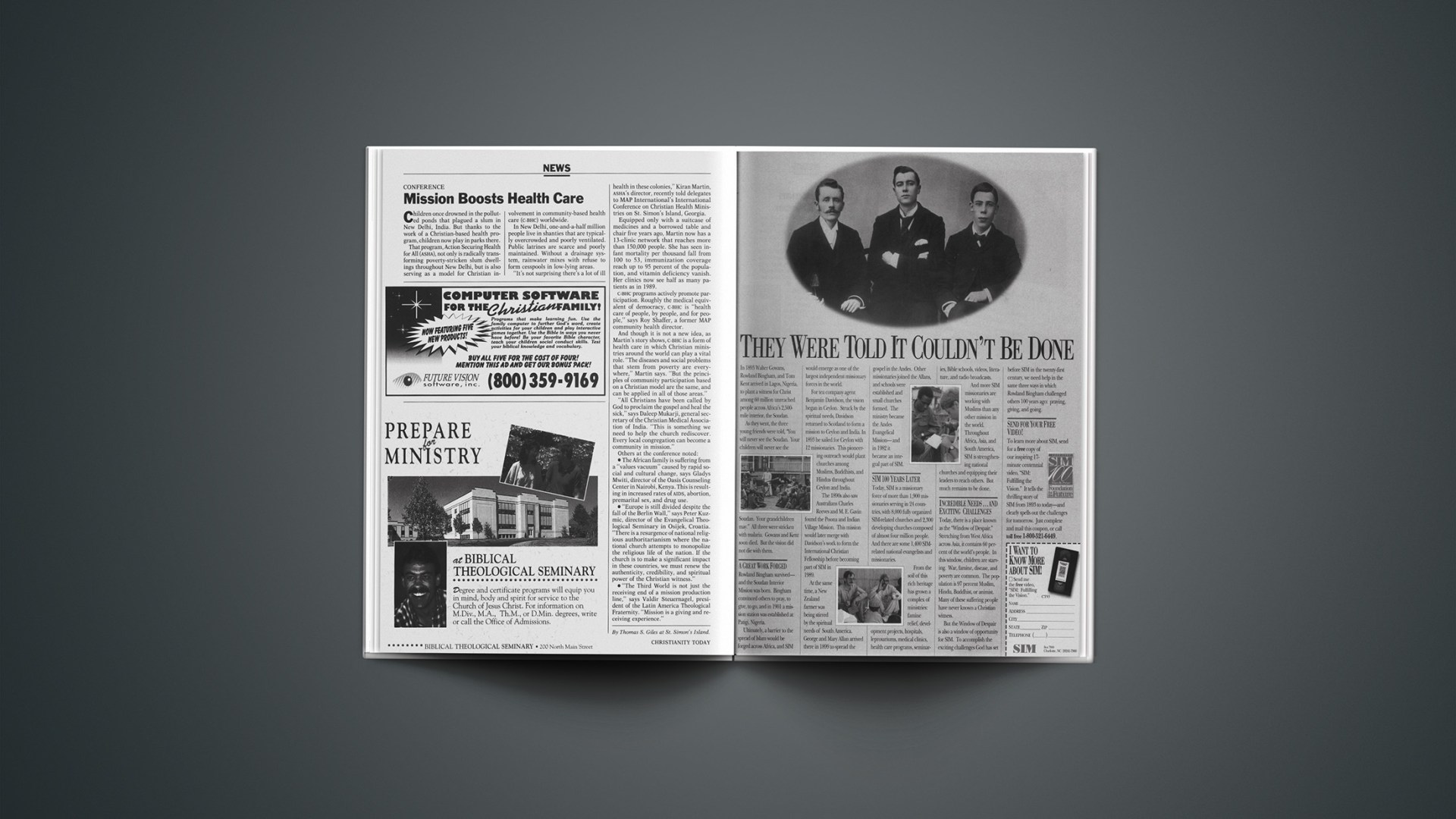Children once drowned in the polluted ponds that plagued a slum in New Delhi, India. But thanks to the work of a Christian-based health program, children now play in parks there.
That program, Action Securing Health for All (ASHA), not only is radically transforming poverty-stricken slum dwellings throughout New Delhi, but is also serving as a model for Christian involvement in community-based health care (C-BHC) worldwide.
In New Delhi, one-and-a-half million people live in shanties that are typically overcrowded and poorly ventilated. Public latrines are scarce and poorly maintained. Without a drainage system, rainwater mixes with refuse to form cesspools in low-lying areas.
“It’s not surprising there’s a lot of ill health in these colonies,” Kiran Martin, ASHA’s director, recently told delegates to MAP International’s International Conference on Christian Health Ministries on St. Simon’s Island, Georgia.
Equipped only with a suitcase of medicines and a borrowed table and chair five years ago, Martin now has a 13-clinic network that reaches more than 150,000 people. She has seen infant mortality per thousand fall from 100 to 53, immunization coverage reach up to 95 percent of the population, and vitamin deficiency vanish. Her clinics now see half as many patients as in 1989.
C-BHC programs actively promote participation. Roughly the medical equivalent of democracy, C-BHC is “health care of people, by people, and for people,” says Roy Shaffer, a former MAP community health director.
And though it is not a new idea, as Martin’s story shows, C-BHC is a form of health care in which Christian ministries around the world can play a vital role. “The diseases and social problems that stem from poverty are everywhere,” Martin says. “But the principles of community participation based on a Christian model are the same, and can be applied in all of those areas.”
“All Christians have been called by God to proclaim the gospel and heal the sick,” says Daleep Mukarji, general secretary of the Christian Medical Association of India. “This is something we need to help the church rediscover. Every local congregation can become a community in mission.”
Others at the conference noted:
• The African family is suffering from a “values vacuum” caused by rapid social and cultural change, says Gladys Mwiti, director of the Oasis Counseling Center in Nairobi, Kenya. This is resulting in increased rates of AIDS, abortion, premarital sex, and drug use.
• “Europe is still divided despite the fall of the Berlin Wall,” says Peter Kuzmic, director of the Evangelical Theological Seminary in Osijek, Croatia. “There is a resurgence of national religious authoritarianism where the national church attempts to monopolize the religious life of the nation. If the church is to make a significant impact in these countries, we must renew the authenticity, credibility, and spiritual power of the Christian witness.”
• “The Third World is not just the receiving end of a mission production line,” says Valdir Steuernagel, president of the Latin America Theological Fraternity. “Mission is a giving and receiving experience.”
By Thomas S. Giles at St. Simon’s Island.










